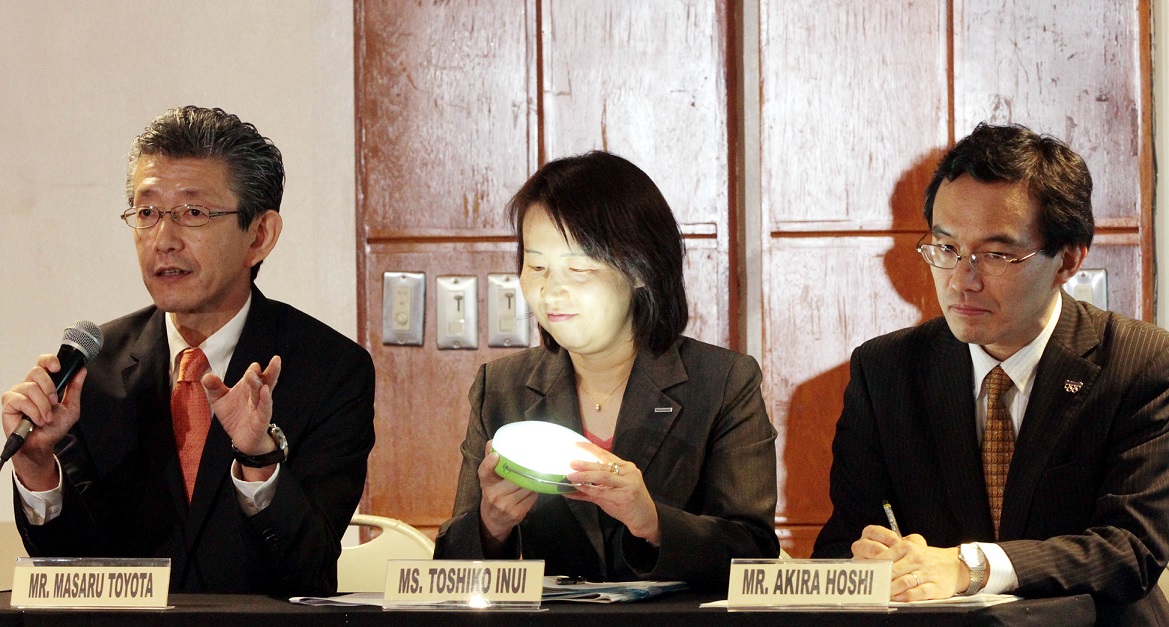Business and Economy
Panasonic provides solar lanterns to PHL

Masaru Toyota (3rd from right), vice president of Panasonic Philippines, announces the donation by his company of 2,376 solar lanterns to 18 non-governmental organizations in the Philippines during a Solar Lantern Donation Ceremony on Tuesday (Feb. 17, 2015) at Jesus V. Del Rosario Foundation Hall, Asian Institute of Management (AIM) Conference Center, Makati City. Also in (right photo) are Akira Hoshi (right) of the Corporate Social Responsibility (CSR) & Citizenship Group, Panasonic Corporation; and Ms. Toshiko Inui, General Manager, CSR Office, CSR & Citizenship Group, Panasonic Corporation. (PNA photos by Jess M. Escaros Jr.)
MANILA– Osaka-based Panasonic Corporation has donated 2,376 solar lanterns to areas in the Philippines with limited access to electricity through 18 non-government organizations (NGOs).
Panasonic Philippines vice president Masaru Toyota said in a briefing on Tuesday that providing solar lanterns to areas with limited access to power is under the firm’s global 100 Thousand Solar Lanterns Project.
The project targets to resolve various social challenges faced by people living in areas with challenging electrical power conditions, especially to emerging and developing countries like the Philippines.
Goals include improving educational environment such as gloomy elementary and middle schools and literacy classes at night; providing light in community center to support the independence of women; providing light in health centers where night-time medical care is provided to infants and expectant or nursing mothers; and boost partnership with NGOs and social enterprises active in regions without electricity.
“Panasonic has a long history here in the Philippines — almost 50 years — since establishing a corporation joint venture in 1967,” Toyota said.
“With 16 million people without electricity, we hope that these solar lanterns can bring light to their lives and improve health access as well as education and business opportunities for locals,” he added.
Victims of typhoon ‘Yolanda’ (Haiyan) had benefited from this project in 2013.
He also cited that aside from this project, the Japanese electronics firm has been actively doing other corporate social responsibility activities in areas of environmental education and scholarship programs.
Meanwhile, Panasonic’s 100,000 Solar Lanterns project has donated over 40,000 units globally by end-March 2015, which also includes 6,000 solar lanterns donated to Myanmar and Cambodia and 240 more units in Ebola-stricken Liberia.
Panasonic will continue this project in Vietnam, India, and Kenya.
Other beneficiaries of Panasonic’s project include Uganda, Niger, Tanzania, and some countries in sub-Saharan Africa, Indonesia, China, as well as its home country of Japan.





















